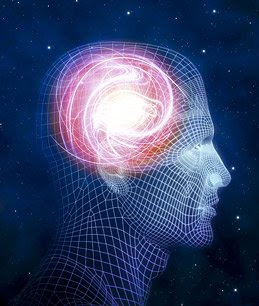
This image captures the debate on the general scale. However, it can be misleading. It appears that nature is stronger, but in reality, it is just two different people (although one may interpret it as nature "winning" the fight).
General Information
This is an about.com page that provides basic information regarding nature vs. nurture. The website describes each side in the debate and then goes further on to point out relevant facts to support or counteract claims. Nature-nurture is not the same as cause-effect; if you were born that way, then that does not necessarily mean that you will behave that way forever. Personality can change over time.
Personality Development
An understanding of personality development is essential before delving into the nature vs. nurture debate. Personality is basically comprised of three components: temperament, environment and character. Temperament is the genetically determined traits, environment is the adaptations and influences surrounding the individual and character is the emotional and cognitive aspect. Personality is examined in the early stages of development (infancy) to later stages (adolescence).
Chameleon Effect
The chameleon effect, a psychological phenomenon, is mentioned in this article. This effect is similar to the nurture theory, in saying that people imitate the behaviors of others around them. The environment in which we live and the people around us affect how we behave.
Homosexuality
Although not necessarily a link, this YouTube video sheds light on the controversial homosexuality issue. Two cases are presented: one of identical twins and one of fraternal twins. Both of these cases show that homosexuality is not ENTIRELY dependent on genes, as previously believed.
Evolutionary Psychology
This site has a section on evolutionary psychology in relation to nature vs. nurture. With Darwin and the theory of evolution, personality is formed for the survival of the fittest, meaning that our genes change over time to meet the needs of the world in which we live in today. Some of these evolutionary psychologists say that certain fears (death, injury, snakes) and traits (shyness, addiction, criminality) are inheritable, but this has drawn criticism.
Fact or Fiction?
Helpful to those who are gullible, this website lists ten politically incorrect truths about human nature. You all have heard various rumors throughout your lifetime thus far, and this Psychology Today article separates fact from fiction with relevant explanations. Topics covered include attractiveness, marriage, divorce and criminality.
Tabula Rasa
Tabula rasa, or blank slate, is the “modern denial of human nature.” Investigated by John Locke, this theory states that humans are born with nothing. However, this cannot be entirely valid because in order to acquire new behaviors, humans must have the inborn ability to learn. The blank slate theory does provide a strong argument for debate.
Compromise?
Some say nature, some say nurture...but a lot say both. Of course this is true, so you are wondering why there is an argument in the first place. There is an argument because exactly how much of a role nature or nurture plays in the development of personality are still at debate. Genes interact with the environment to form traits; it is a nature VIA nurture type of pathway.
So, there are the links that outline the general topic of nature vs. nurture. While researching, I found quite a bit more evidence supporting nurture. In the end, you cannot have one without the other.


I like your picture. I agree with your conclusion. We are who we are. I think genes and environment influence us daily. It is hard to examine your own life and see what has influenced you, but it is also a very interesting examination.
ReplyDeleteI found that picture to be relevant since it is, after all, a competitive debate.
ReplyDeleteYes, it is interesting to examine our own lives. It makes you realize what type of person you are and where those mysterious traits could have possibly come from. I enjoyed writing the "questioning my own traits" post a while back because it made me think how I became who I am in the context of nature and nurture.